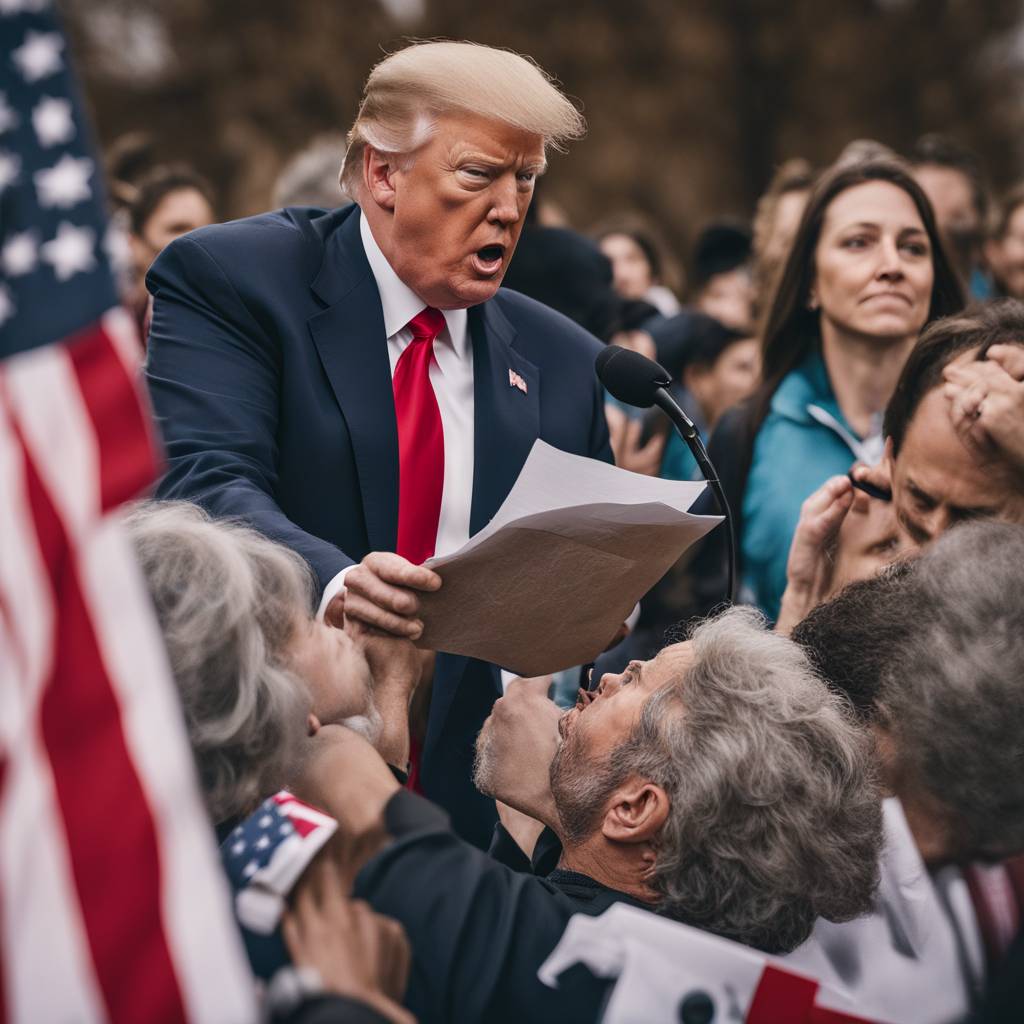In a recent conversation with CNN, anti-abortion voter Rebekah Haynie expressed her disappointment in former President Donald Trump’s stance on abortion legislation. Haynie believed that Trump’s suggestion to leave abortion laws up to individual states was a form of betrayal to the anti-abortion community. She stated that abortion is a fundamental issue and should be addressed at a federal level to protect the rights of the unborn. Haynie’s remarks highlight the complex and diverse perspectives within the anti-abortion movement.
Haynie emphasized the importance of federal intervention in regulating abortion laws, as she views it as a human rights issue that must be handled consistently across all states. She argued that the unborn have rights that should be protected under federal law, rather than being subject to the varying regulations of individual states. Haynie’s perspective sheds light on the challenges faced by anti-abortion advocates in maintaining a unified front on the issue, especially when political leaders like Trump take differing positions that may not align with their beliefs.
The conversation with Haynie also delved into the emotional and personal aspects of the abortion debate, highlighting the pain and trauma experienced by individuals who have undergone or been affected by abortions. Haynie shared her own story of facing an unplanned pregnancy and the difficult decision she made to carry the pregnancy to term despite pressures to terminate it. Her personal experience underscores the complexity of the abortion issue and the profound impact it can have on individuals and families, further adding to the emotional weight of the debate.
Haynie’s remarks reflect a broader trend in the anti-abortion movement, where individuals grapple with the intersection of personal beliefs, political ideologies, and ethical considerations. The diversity of opinions within the movement demonstrates that there is no singular approach to addressing abortion, and that individuals may weigh various factors in forming their perspectives on the issue. The nuanced discussions within the movement highlight the complexity of navigating abortion politics and the challenges of finding common ground among individuals with differing views on the topic.
As the abortion debate continues to unfold in the political arena, voices like Haynie’s serve as a reminder of the deeply personal nature of the issue and the complex dynamics at play within the anti-abortion movement. Her reflections on Trump’s stance on abortion legislation underscore the challenges of reconciling personal beliefs with political realities, and the ongoing struggle to advocate for the rights of the unborn in a diverse and divided society. The conversation with Haynie offers a glimpse into the internal debates and conflicts that shape the anti-abortion movement, highlighting the need for continued dialogue and engagement on this highly contentious and deeply polarizing issue.













